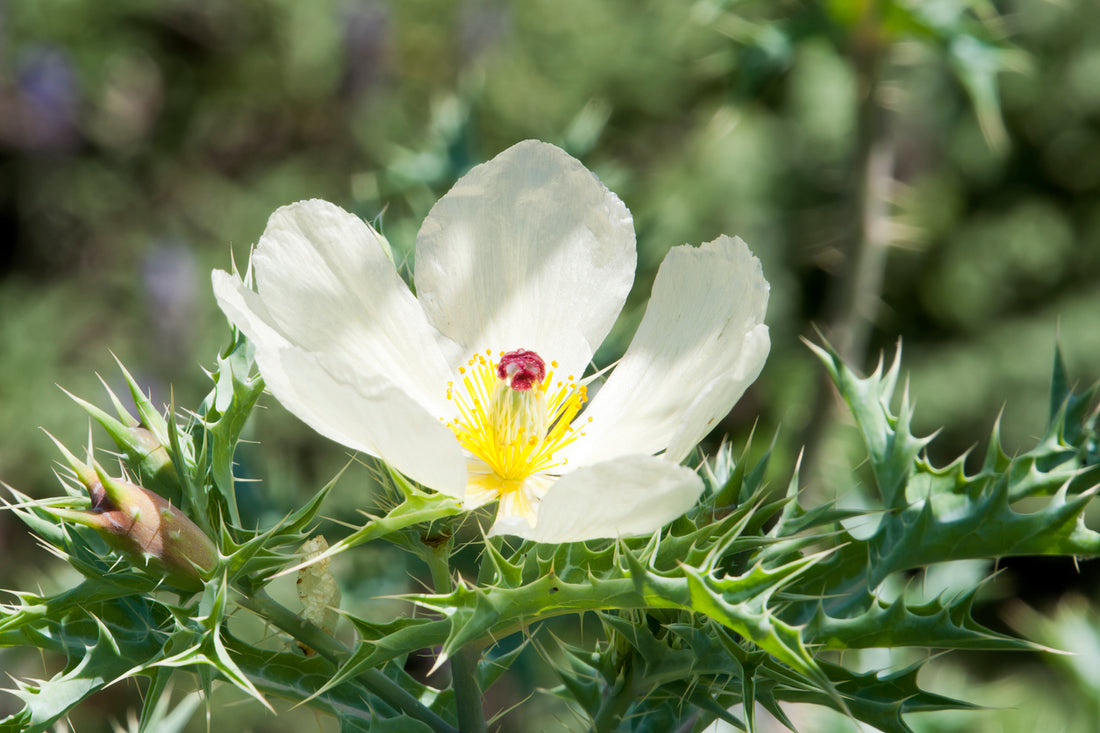Berberine is a chemical present in various plants that has multiple medicinal properties. Since ancient times, berberine has been used to treat infections and digestive ailments.
Berberine has aroused great interest in medicine since 1988, when Chinese doctors observed a great improvement in blood glucose levels in several diabetic patients who had been taking Berberine for diarrhea.
Therapeutic uses of Berberine
The therapeutic applications that have raised the greatest expectations and interest among researchers are those related to cardiovascular disease and metabolic syndrome. But, although they are the best known, they are not the only properties of this extraordinary substance.
Berberine-containing plants
Berberine is an alkaloid, that is, a bitter active ingredient that is extracted from the roots, stem, bark, or rhizome of various plants, such as goldenseal, barberry, turmeric tree, or European barberry, among other.
Alkaloids are nitrogenous substances that originate in the metabolic processes of amino acids, so we can only find them in vegetables. Thanks to this, Berberine has multiple beneficial effects for our health.
In traditional Chinese medicine, as well as in Indian medicine or Ayurveda, Berberine has always been a popular remedy, due to the great properties that the substance hides, ideal for treating everything from diabetes to heart failure.
Properties and benefits of berberine
Berberine has multiple properties that allow it to act in different areas of health, such as the following:
- Antibiotic
- Antifungal
- Antiparasitic
- Anti-Inflammatory
- Cardioprotective
- Antidiabetic
- Digestive Properties
- Neuroprotective
- Detoxifying Properties
All these medicinal properties of Berberine are ideal for treating different ailments, such as the ones we will see below.
Uses and applications of berberine
Although its properties are multiple, Berberine stands out for 4 specific benefits and uses, which have made it an optimal natural supplement for your body:
- Natural benefits for type 2 diabetes and hyperglycemia
- Helps regulate cholesterol
- May promote benefits in fatty liver
- Helps lose weight
Berberine for type 2 diabetes and hyperglycemia
One of the main effects of Berberine is its hypoglycemic effect, ideal for treating type 2 diabetes and hyperglycemia. In this sense, its action is based on the stimulation of the pancreas to make insulin work effectively after food has been eaten.
Berberine works to regulate high glucose levels, thus preventing microcirculation problems. This substance intervenes in diabetes by performing the following tasks:
- Decreasing insulin resistance.
- Decreasing the synthetization of sugars in the liver
- Promoting bacterial proliferation at the intestinal level
Berberine to regulate cholesterol
Berberine is a remedy that acts to regulate and reduce high levels of cholesterol in the blood. High levels of fatty acids cause various cardiovascular diseases and pathologies that can even lead to death. Excessive consumption of fats and sugars are the main causes of these high cholesterol levels.
Berberine has a direct response on these levels, as its work focuses on reducing cholesterol and triglycerides in the blood. In addition, it has inhibiting effects on the PCSK9 enzyme, responsible for accumulating cholesterol deposits in the blood. Thus, this substance prevents bad cholesterol from being deposited in the body and reduces the probability of developing heart disease in the long term.
Anti-Inflammatory
We know that prostaglandin E2 is an important mediator of inflammation, which is produced when there is an increase in the activity of the enzyme cyclooxygenase-2. In various studies it has been possible to verify the capacity of Berberine to neutralize the inflammatory effect of this substance (1)
More recently, it has been seen that Berberine can inhibit the expression of genes that code for the manufacture of a wide range of pro-inflammatory substances: IL-1β, IL-6, iNOS, MCP-1, COX-2, and metalloprotease-921.
Natural antioxidant
To the anti-inflammatory effect of Berberine, we must add the antioxidant effects22 that this substance is capable of evidencing, and which according to some researchers would be the cause of its ability to act in such a wide range of pathologies (2) (3).
Hypertension
Berberine is a substance that reduces high blood pressure thanks to its ability to produce vasorelaxation. This vasorelaxation could occur in two ways:
- Action on the vascular endothelium
- Action on vascular smooth muscle
The action on the endothelium occurs with low concentrations of Berberine, which have been shown to be capable of causing dilation in the aortic artery. The relaxing action of vascular smooth muscle occurs at high concentrations of Berberine and is independent of the effect on the endothelium (4)
The exact mechanism by which Berberine would be capable of producing this vasorelaxation is not exactly known, although it could be a combination of the following:
- Inhibition of ACE (angiotensin converting enzyme)
- Direct action on the nitric oxide NO/cgmp system (at the level of the aorta)
- Increased sensitivity of acetylcholine receptors (neurotransmitter that produces relaxation in smooth muscle)
- Activation of potassium K+ channels
If it has been established that Berberine, like the drug Prazosin, has a competitive blocking effect on alpha-1 adrenergic receptors (5)
All of this would be useful, not only for hypertension, but for other cardiac pathologies such as heart failure and arrhythmias.
In heart failure, because it increases the ejection fraction of the heart (amount of blood pumped out by the left ventricle in each beat), preventing pulmonary edema (puddled lung). (6)
Berberine is also useful in ventricular tachyarrhythmia because it decreases heart rate and premature ventricular complexes (premature and ineffective contractions).
In a trial with patients suffering from heart failure with ventricular tachyarrhythmia, to whom Berberine was administered, tachyarrhythmias were reduced by between 50% and 90% in 100% of treated patients.
If you find this helpful Please Like, Share and Follow. @greatermood
Also check out our other health Topics here
References
- https://www.ncbi.nlm.nih.gov/pubmed/?term=Kuo+CL%2C+Chi+CW%2C+Liu+TY.+The+anti-inflammatory+potential+of+berberine+in+vitro+and+in+vivo.+Cancer+Lett+2004%3B203%3A127-37+%5BCrossRef%5D%2C+%5BPubMed%5D%2C+%5BWeb+of+Science+%C2%AE%5D
- https://www.hindawi.com/journals/ije/2015/905749/
- http://www.medscimonit.com/abstract/index/idArt/878307/act/2
- https://www.ncbi.nlm.nih.gov/pubmed/2896250?dopt=Abstract
- https://www.ncbi.nlm.nih.gov/pubmed/11607041?dopt=Abstract

